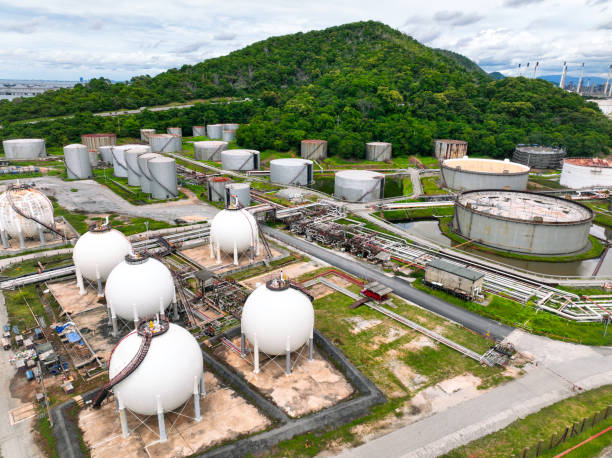Setting Up a Propane Manufacturing Plant: Key Considerations

Establishing a propane manufacturing plant involves a detailed understanding of production processes, regulatory requirements, and market dynamics. Propane, a clean-burning fuel, is primarily produced as a byproduct of natural gas processing and petroleum refining. Its applications range from residential heating and cooking to industrial uses, making it a valuable energy source.
Understanding Propane Production
Propane is typically extracted during natural gas processing and oil refining. In natural gas processing, raw gas contains various hydrocarbons and impurities. Propane is isolated and purified through a series of steps, including separation and fractionation. Similarly, during oil refining, propane is separated from crude oil components. These processes require specialized equipment and technologies to ensure efficiency and safety.
Essential Components of a Propane Plant
Feedstock Supply: Securing a reliable raw natural gas or crude oil source is fundamental. The quality and consistency of feedstock directly impact production efficiency and product quality.
Processing Units: Key installations include fractionation towers, compressors, and refrigeration systems. These units work together to separate propane from other hydrocarbons and impurities.
Storage Facilities: Proper storage solutions, such as pressurized tanks, must safely contain propane before distribution. These facilities must adhere to stringent safety standards to prevent leaks and accidents.
Safety Systems: Implementing robust safety measures, including gas detection systems, emergency shutdown mechanisms, and fire suppression systems, is crucial to protect personnel and the environment.
Regulatory Compliance and Safety Standards
Compliance with local, national, and international regulations is mandatory. This includes obtaining necessary permits, adhering to environmental guidelines, and following industry-specific safety protocols. Regular inspections and audits ensure the plant operates safely and within legal parameters. Engaging with regulatory bodies early in planning can facilitate smoother approvals and operations.
Economic and Market Factors
Understanding market demand, pricing trends, and competition is vital for the plant’s success. Conducting a thorough market analysis helps identify potential customers and tailoron capacities accordingly. Additionally, considering factors such as transportation logistics, proximity to key markets, and possible partnerships can enhance competitiveness.
Environmental Considerations
Implementing environmentally friendly practices ensures compliance with regulations and enhances the company’s reputation. This includes managing emissions, treating waste products, and optimizing energy use. Investing in technologies that reduce environmental impact can lead to long-term sustainability and cost savings.
Skilled Workforce and Training
A competent workforce is essential for efficient plant operations. Investing in training programs ensures that employees are knowledgeable about safety protocols, operational procedures, and emergency responses. Continuous education and skill development will both contribute to overall productivity and safety.
Establishing a propane manufacturing plant is a complex endeavor that requires meticulous planning and execution. By focusing on technical, regulatory, economic, and environmental aspects, businesses can build a foundation for successful operations in the propane industry.
Benefits for the Propane Industry
Setting up a propane manufacturing plant does more than produce fuel – it strengthens the entire propane supply chain. By increasing domestic propane production, businesses can benefit from a more stable and reliable supply, reducing dependence on imports and minimizing price fluctuations. A well-structured manufacturing plant also helps meet growing demand in residential, commercial, and industrial markets, ensuring propane remains a competitive energy source.
For propane distributors and retailers, having access to a steady supply from local or regional manufacturers can improve delivery efficiency and reduce transportation costs. Lower operational costs lead to better consumer pricing, making propane a more attractive option for heating, cooking, and other applications. Additionally, a well-regulated propane plant prioritizes safety and environmental responsibility, which helps build trust among businesses and customers.
Investing in a propane plant also creates opportunities for partnerships within the industry. Suppliers, transport companies, and service providers can collaborate to develop stronger distribution networks and expand market reach. Businesses that integrate propane production into their operations can secure long-term profitability, remain competitive, and position themselves as industry leaders in the growing energy sector.














